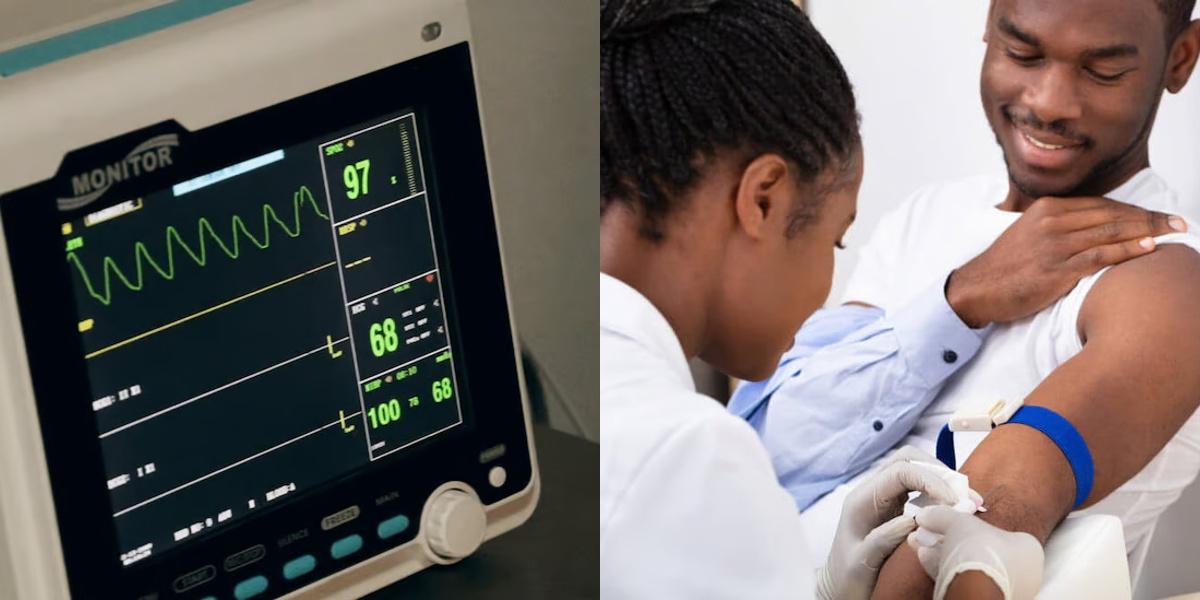EKG vs Phlebotomy (2026)

Are you interested in a healthcare career but unsure whether to focus on heart diagnostics or blood collection? Both EKG Technicians and Phlebotomists play essential roles in patient care, but their training, responsibilities, and career paths are distinctly different.
An EKG Technician earns a median salary of $67,260 per year, while a Phlebotomist earns a median of $43,660 annually. While both fields are growing, phlebotomy is projected to have significantly more annual job openings.
This guide compares these two rewarding careers to help you decide which path aligns best with your goals.
Key Points
- EKG Technicians specialize in conducting heart tests, while Phlebotomists focus on drawing blood for testing or donation.
- EKG Technicians earn significantly more than Phlebotomists, with a median salary over $24,000 higher.
- Phlebotomists are in higher demand, with about 18,400 job openings projected each year compared to 3,800 for cardiovascular technologists.
- EKG training is often less expensive than phlebotomy training, with typical costs ranging from $400–$1,600.
- Training durations are similar, with most certificate programs for both fields lasting between 4 and 12 weeks.
Phlebotomist:
- Training: Phlebotomy programs typically range from 4 weeks to 6 months, with most standard certificate programs lasting 6 to 12 weeks.
- Cost: Program costs generally fall between $500 and $3,000. This often excludes extra fees for exams, books, and background checks.
- Certification: Some states, including California, Washington, Louisiana, and Nevada, require state-level licensure or certification. In other states, national certification like the CPT from NHA is the industry standard. Accredited programs require a minimum number of successful, supervised blood draws.
A Note on Online Training: While theoretical coursework for both fields can be completed online, both require in-person, hands-on clinical training to qualify for certification. Reputable programs operate on a hybrid model, combining online classes with mandatory on-site labs and clinical externships.
Salary and Job Outlook
Compensation and demand are critical factors when choosing a career path. Here is the latest data from the U.S. Bureau of Labor Statistics.
EKG Technician:
- Median Salary: $67,260/year.
- Job Growth: 3% by 2034, faster than average.
- Demand Drivers: Aging populations and advancements in cardiac care.
Phlebotomist:
- Median Salary: $43,660/year.
- Job Growth: 6% by 2034, much faster than average.
- Demand Drivers: Increased diagnostic testing and blood donation needs.
Which Career is Right for You?
Your decision depends on your personal interests, financial goals, and how you prefer to interact with patients.
Choose EKG Technician if:
- You are fascinated by cardiology, technology, and diagnostics.
- You are seeking a higher long-term earning potential.
- You enjoy more analytical work and longer, more involved patient procedures.
- You want an affordable training program to enter a specialized field.
Choose Phlebotomist if:
- You want the fastest possible entry into a high-demand healthcare role.
- You are skilled with your hands and have a calm demeanor with anxious patients.
- You prefer brief, focused, and task-oriented patient interactions.
- You are looking for a role with a large number of job openings across the country.
Final Thoughts
Both EKG Technicians and Phlebotomists are vital to modern healthcare. Each role offers a unique way to make a difference in patients' lives and provides a stable, rewarding career:
- If you’re drawn to heart diagnostics and advanced technology, becoming an EKG Technician may be the right fit.
- If you prefer direct patient care and want to start your career quickly, Phlebotomy could be your ideal path.
Ready to get started? Explore top-notch training programs on Dreambound and take the first step toward a fulfilling healthcare career.
Dreambound extends its programs to diverse locations. Delve deeper into information about these two vocations by visiting:

Justine Tacmo is part of the Growth team at Dreambound. He assists the organization by updating critical information so students receive the most up-to-date information for their desired trade schools. Besides, he has a passion for writing and expresses it through poetry, covering themes of life, love, and mental health, which is also his advocacy.




